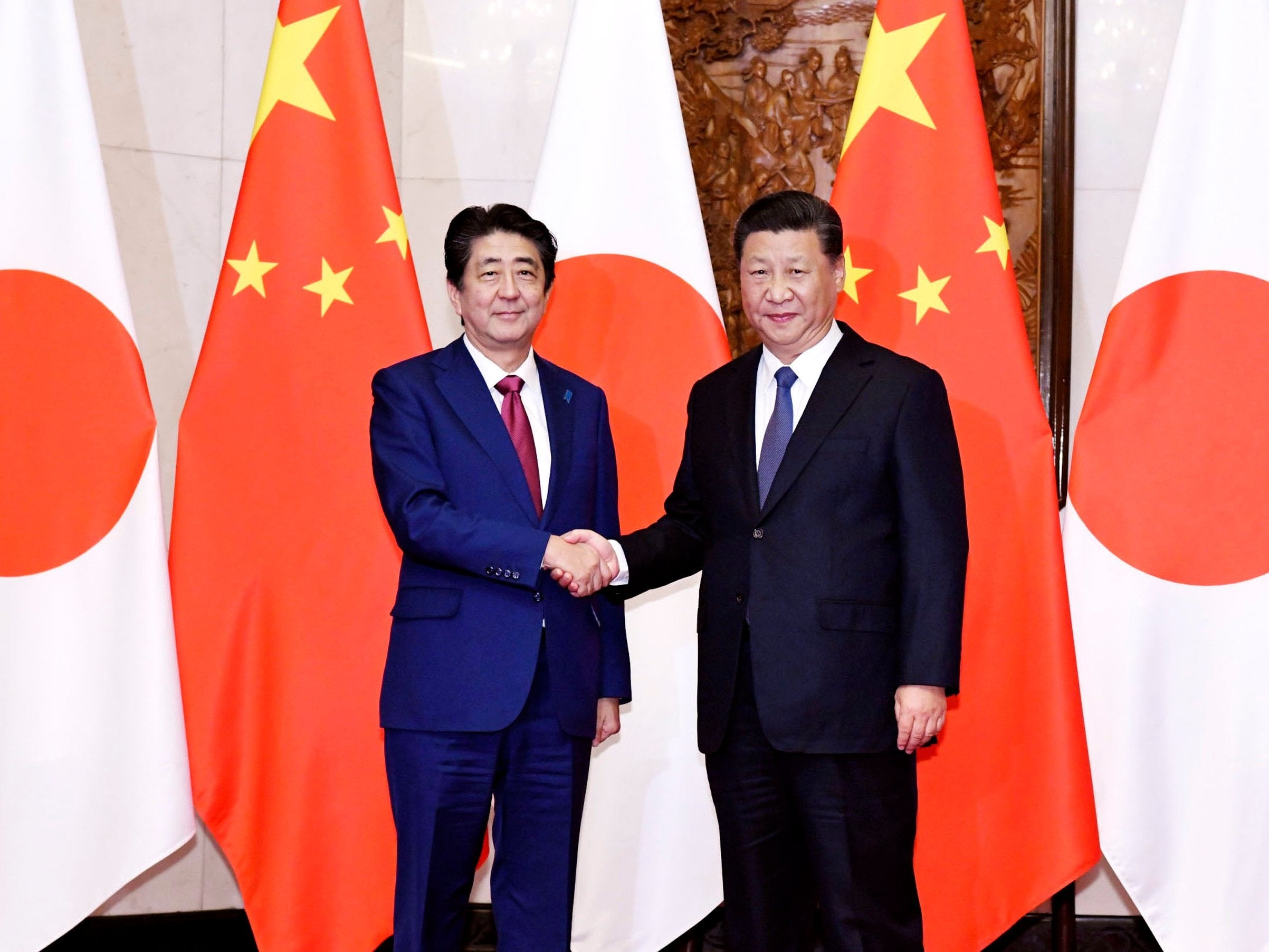China and Japan show united front on 'free and fair trade' as Xi Jinping and Shinzo Abe meet in Beijing
The two leaders signed several agreements including a currency swap deal

Your support helps us to tell the story
From reproductive rights to climate change to Big Tech, The Independent is on the ground when the story is developing. Whether it's investigating the financials of Elon Musk's pro-Trump PAC or producing our latest documentary, 'The A Word', which shines a light on the American women fighting for reproductive rights, we know how important it is to parse out the facts from the messaging.
At such a critical moment in US history, we need reporters on the ground. Your donation allows us to keep sending journalists to speak to both sides of the story.
The Independent is trusted by Americans across the entire political spectrum. And unlike many other quality news outlets, we choose not to lock Americans out of our reporting and analysis with paywalls. We believe quality journalism should be available to everyone, paid for by those who can afford it.
Your support makes all the difference.China and Japan displayed a united front on "free and fair" trade as leaders of Asia's two biggest economies met Friday in Beijing.
The visit by Japanese Prime Minister Shinzo Abe, along with hundreds of Japanese businessmen, took place against the backdrop of the festering trade dispute between China and the US, which has resulted in both sides imposing billions of dollars in tariffs on each other's exports.
“I believe we need to take to a new level a free and fair trade system,” Mr Abe said after meeting with Chinese President Xi Jinping.
The two sides signed a slew of agreements, including a currency swap deal and plans to work together in other markets.
The demonstration of unity was underlined by the nearly 1,000 business representatives who travelled to Beijing from Japan. China's Premier Li Keqiang said they had signed 500 agreements worth $18 billion (£14.03 billion).
“This indicates our cooperation has great potential and a promising prospect,” he said. “As countries with great influence in the region and the world, we should safeguard free trade.”
Mr Keqiang said the two sides should work on regional free trade deals such as the Regional Comprehensive Economic Partnership, which does not include the US, and on a free trade area between China, South Korea and Japan.
“The realisation of regional economic integration in the Asia Pacific region benefits the development of global free trade,” Mr Keqiang said.
President Donald Trump's effort to win more favourable trade deals for the US has focused most heavily on China, source of the biggest American trade deficit and the target of complaints over Beijing's policies for building leadership in advanced technologies.
Japan, too, faces pressure over its own trade imbalance with the US, especially on auto exports. Mr Abe's government has agreed on holding talks with the US, its powerful ally, on a bilateral trade deal but also needs good relations with China, its biggest trading partner and the regional powerhouse.
Also Friday, the central banks of the two countries signed a three-year, bilateral currency swap agreement enabling the two sides to swap up to 200 billion yuan (about £21.8 billion) for 3.4 trillion yen (about £23.8 billion). Such deals are aimed at easing trade transactions and support for financial markets.
The two countries agreed to discuss advanced technologies and issues related to patents and other intellectual property — a perennial bugbear for China's relations with all foreign investors. The Japanese financial newspaper Nikkei said China was hoping to find ways to avoid shortages of components resulting from the trade dispute with the US.
A highlight of Mr Abe's meetings was the dozens of preliminary agreements on China-Japan cooperation in other countries, such as a “smart, sustainable city” in eastern Thailand.
A Japanese government document outlining the accords listed agreements between banks, insurers, energy companies, a cotton grower, contractors, electronics and logistics companies, as well as local governments and trade promotion organisations.
Mr Abe's three-day visit was the first by a Japanese prime minister since December 2011.
Associated Press
Join our commenting forum
Join thought-provoking conversations, follow other Independent readers and see their replies
Comments